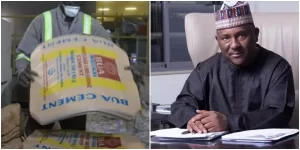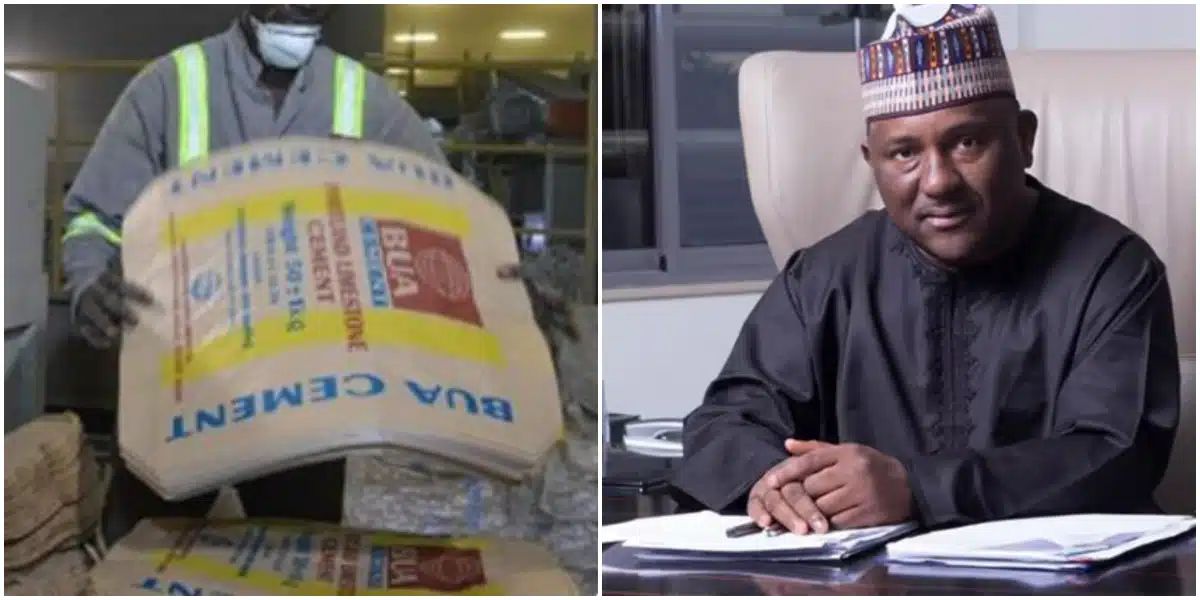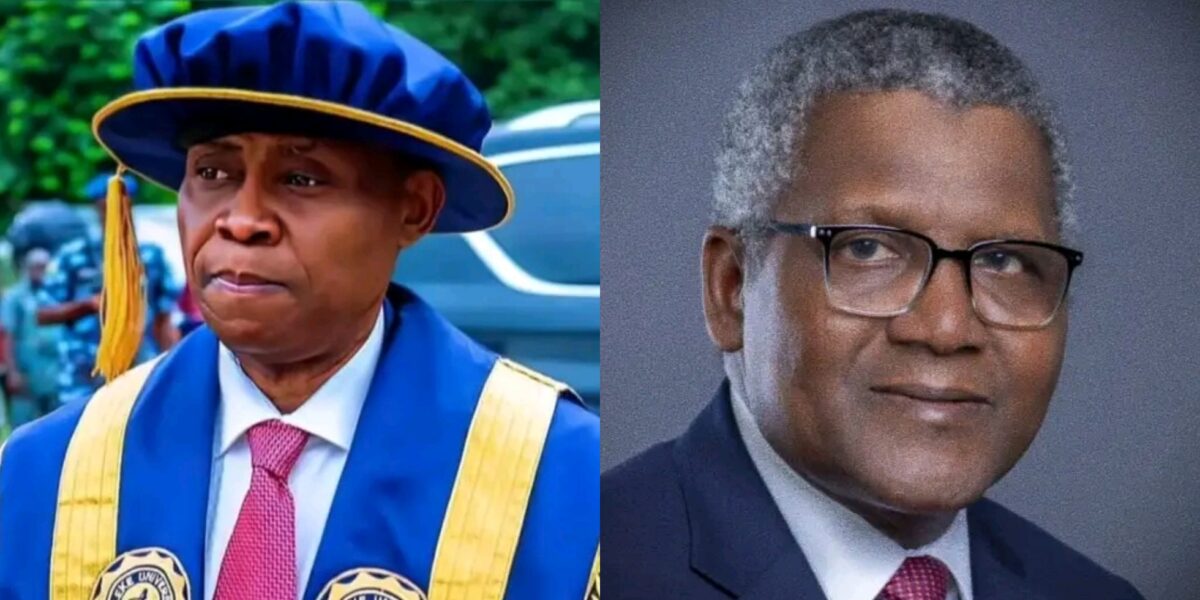
The chairman of BUA Cement, AbdulSamad Rabiu, has disclosed how avaricious dealers undermined his company’s attempt to sell cement to Nigerians in 2023 at a discounted price of N3500 a bag.
Rabiu claims that even though BUA Cement wanted to lower the cost of cement for Nigerians, dealers seriously hampered the company’s efforts by selling the material for much more than N8,000 each bag.
In order to increase the product’s accessibility for the general population, Rabiu clarified that BUA Cement has sold nearly a million tons of cement to dealers at the intended price of N3,500 per bag.
The pricing approach was abused by numerous dealers and wholesale merchants, who marked up the costs significantly, frustrating the objective. Eyes Of Lagos reports,

Instead of passing the savings on to consumers, these dealers sold the cement at prices ranging from N7,000 to N8,000 per bag.
Rabiu noted that BUA Cement struggled to regulate the dealers who were benefiting from the high profit margins.
He also cited the devaluation of the Naira and the removal of fuel subsidies as additional obstacles that made it difficult to maintain the subsidized price.
In his words:
“So, a lot of the dealers took advantage of that policy. Rather than pass the low prices to the customers, they were selling at even double the price we sold to them.
“Some were selling at N7,000 and 8,000 per bag. They made a lot of money with a very high margin. I think we had sold more than a million tons at N3,500 before we realised what the dealers were doing.
“And then, because of the issues that Nigeria faced at the time about the devaluation of the Naira last year and the removal of fuel subsidy, we could not continue that policy.
“We wanted that price to stay at that level but dealers refused. So, we could not sustain that simply because we did not want to be in a situation where we are subsidizing dealers.
“I’m referring to the point when the foreign exchange rate moved from about N600 to maybe N1,800 to the US Dollar. So, it became even more challenging and more difficult for us to actually sustain that price policy.”




